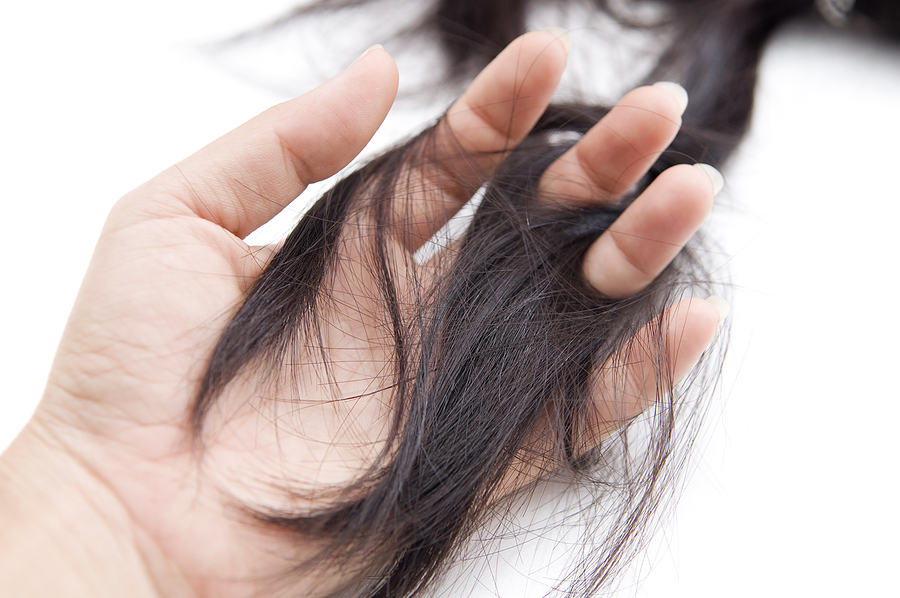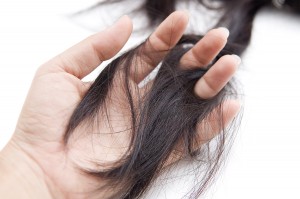For the majority of women hair truly is their crowning glory with many feeling depressed if they have a ‘bad hair day’ – so it’s not surprising we prize our hair so much. After all, psychologists claim it is a woman’s ‘secondary sexual characteristic’ and so its loss can have a devastating impact.
Now a new clinical study, published in May in European Dermatology Journal, reveals the deep psychological and quality of life impact experienced by women suffering from genetic hair loss – a condition often not taken seriously by physicians.
– Five million women in the UK experience hair loss, leaving many depressed
– The severe psychological impact of condition often dismissed as “cosmetic”
– That billions is spent on anti-ageing and weight loss but losing their hair is women’s biggest fear
In the UK £5.2 billion is spent every year on anti-ageing and diet products yet 45% of women say that losing their hair is their greatest fear above sagging skin (12%) and gaining weight (12%), leading experts to call for a wider acknowledgement and understanding of the psychological impact of female hair loss.
The research conducted on women aged 20-55 over a 24 month period shows that, if left untreated, genetic hair loss can lead to long term psychological problems which can increase patients’ susceptibility to psychosomatic diseases.
Conducted by leading trichologist and President of the World Trichology Society, Dr David H. Kingsley, the study assessed women against key psychological markers including anxiety, self-esteem, depression and social interaction with a view to establishing an overall quality of life (QOL) score for each patient.
Women’s QOL score improved after undergoing a 6 month course of natural trichology treatments designed to help control further hair loss, support new hair growth, and improve the cosmetic appearance of the hair.
Despite these encouraging results which can be achieved through the right professional advice and treatment, a survey of 2,000 UK women, commissioned by Nourkrin (a 100% naturally based food supplement designed to supply the body with the specific nutrients needed to promote good, natural hair growth), reveals that one in five who sought advice about thinning hair from a GP or other non-specialist health professional felt that their condition was not taken seriously.
With the majority of women admitting that losing their hair would be the worst thing that could happen to their appearance, it is clear that the condition and its psychological effects should be given greater priority.
“Because we are still searching for a reliable cure for genetic hair loss, GPs often fail to take patients seriously when they present with signs of thinning hair. Although hair loss is not life threatening, it is life altering. Therefore, the message that we’re trying to convey from the World Trichology Society is that this is a serious problem and, though there is presently no 100% dependable cure, there are treatment options and combinations available that can greatly improve a woman’s psychological health and quality of life,” says Dr Kingsley.
As a result of hair loss being dismissed as a serious problem, over a quarter of women have been left feeling depressed, while a fifth worried if a serious disease may be the underlying cause. And with 60% of women believing stress to be a key reason for their hair loss, it seems there could be a vicious cycle at play for a large proportion of female sufferers.
Psychologist and author, Corinne Sweet explains how hair loss can affect women: “Unfortunately, women’s emotional distress at the state of their hair is often dismissed. However, there is a definite psychological loss of status, self-esteem and self-confidence when hair thins or even falls out. This is because hair is a ‘secondary sexual characteristic’, and as such, is a serious weapon in women’s sexual, and sensual, armoury. In films and novels women toss their locks to attract a man, it creates a ‘come hither’ signal, linked to flirtation and reproduction.
Thus, when hair drops, so can a woman’s self-worth. Serious hair loss can lead not only to depression, but agoraphobia, even suicidal feelings, as women can feel the the world is too harsh and judgemental for them to deal with. Women can fear they are no longer sexy or seductive, or able to compete at work or go out socially. Thus it is essential women receive the right advice about the treatment options available to them to help them achieve improved feelings self-worth and restore their enjoyment of life.”
Birgit Beer, a professional opera singer, explains the impact that hair loss has had on her life: “As someone who has to get up and perform in front of people for my job, confidence is absolutely everything. When I started losing my hair it affected me in every way. My confidence and self-esteem dropped and that had an effect on my performance. It was embarrassing and really difficult to talk to people about but it’s amazing knowing now how many women have been through the same situation. When I was looking for treatment I was worried about the side effects of prescription medicines might have so was so happy to find a product with a natural active ingredient like Marilex which is derived from the sea.”
Have you lost your hair? Perhaps you have tried everything and nothing works? Maybe it’s stopped you from going out and your job or relationships have suffered because of it? Or perhaps you embraced it? Let us know by contacting us HERE…





I’m 30 and I’ve had AGA for the last 7 years. I was in denial the first year or two, then went though a period of extreme anxiety, trying to “fix” it by using spiro, finasteride but they made little difference – I have just started taking Nourkrin though I am not expecting it to work even though the website say it works for 8 out of 10. I am now finally accepting that this is something I am going to have to live with.